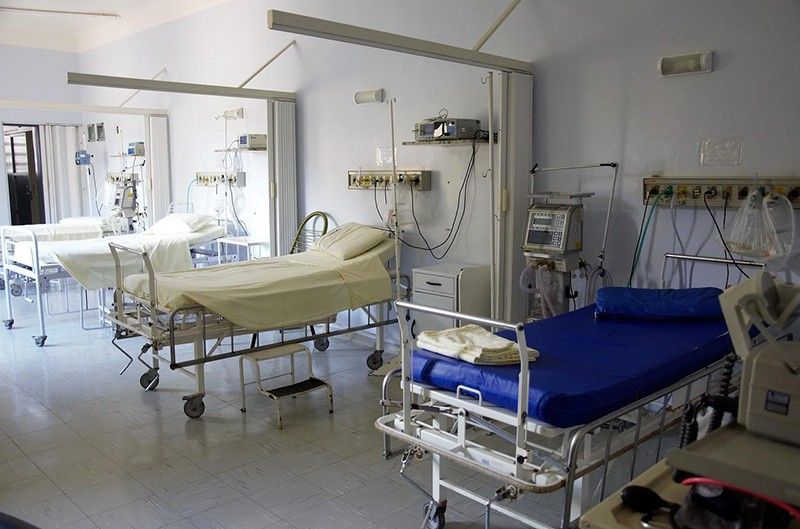Envisioning the best health outcomes for Filipinos with rare diseases

As an advocate of universal healthcare, I believe that the delivery of timely, responsive, and sustainable health services should be provided to all.
Every Filipino has the right to health, and it is only appropriate that priority should be provided to the underprivileged sick, elderly, disabled, women and children, as mandated in the Philippine Constitution.
Usually referred to as “orphan diseases”, rare diseases are a group of disorders which are considered chronic, progressive, degenerative, and life-threatening that only affect a few patients.
Still unknown to many, people living with rare diseases (PLWRDs) are continuously burdened by long-term challenges. These include lifetime medical management due to the high cost of treatment and products related to the illness.
Initial discussions were held in January of this year among various health stakeholders with the hope that we could facilitate the implementation of the Rare Diseases Law of 2016 or Republic Act No. 10747. The law seems to have been overlooked in the past years – it was only this year that it was given funding for its implementation. An amount of P104.9 million was allocated in the General Appropriation Act of 2022.
After this, several milestones were achieved in a span of few months. To name a few, the Rare Disease Technical Working Group was officially formed (or should I say, reconstituted) and the recent finalization of the Integrated Rare Disease Management Program 5-year Strategic Plan, among others. These steps will help provide better and brighter future for PLWRDs.
The Stratbase ADR Institute, in partnership with the Philippine Society for Orphan Disorders (PSOD) and UHCWatch, conducted a hybrid town hall discussion (THD) entitled “The State of Rare Disease Law: Continuing Implementation and the Delivery of Responsive Health Services to the Affected Population” last August 15, 2022.
In his opening remarks, Professor Victor Andres “Dindo” Manhit, president of Stratbase ADR Institute, said that “continuous support and advocacy is needed to sustain a responsive healthcare system and that adequate resources are vital to constantly respond with the public needs, including those PLWRDs.”
Dr. Razel Nikka M. Hao. Director IV of the Disease Prevention and Control Bureau - Department of Health, said that “the five-year plan for the integrated management of the [rare disease] condition is rooted on the five guiding principles of access, integrated comprehensive care, evidence-based policies, inclusive communication, and enhanced collaboration. According to her, it envisions the best health outcomes for the Filipinos with rare diseases.
According to Daisy Cembrano of the Pharmaceutical and Healthcare Association of the Philippines, accessing orphan drugs is a challenge, as only 5% of rare diseases have an approved orphan drug. She said, “existing regulatory processes are often unsuitable for rare diseases”. Thus, she recommended the building of an agile registration process that will grant faster regulatory approval, separate from the usual pathway of the Food and Drug Administration (FDA).
Cynthia Magdaraog, president of the Philippine Society for Orphan Disorders, said that most of the medicines for rare diseases are very expensive and usually beyond the means of most people. According to her, although they have enjoyed an international compassionate access program, it cannot be expected that it will be there for a very long time”.
As part of the responses, Dr. Lizette Kristine Lopez, chair of the Subcommittee on Drugs, Health Technology Assessment (HTA) Council, stated that they cannot assess anything that does not have prior FDA approval, as they are bound with the provisions stated in the UHC Act. She admitted that this needs to be established within the pathways, methods and processes of the HTA.
Chris Muñoz, vice-president of the Philippine Alliance of Patient Organizations, said that “public funding is needed, and this has always been a struggle in other countries, as well. Having separate funds for the Rare Disease Act is a necessity since [rare diseases] are often chronic, progressive, life threatening, and can cause a substantial economic burden.”
In his remarks, Sen. Juan Edgardo “Sonny” Angara underscored that “funding is a challenge, but hopefully the Legislature can provide more,” while expressing gratitude to the private sector for their help and encouraged people to partner with the government in helping make progress. He also assured the public of the continued support and motivated them to continue the dialogue to keep the attention on rare diseases.
I would like to take the opportunity to send my utmost appreciation to the rest of the speakers, Chancellor Carmencita Padilla, Director Eva Maria Cutiongco-dela Paz, Dr. Durhane Wong-Rieger and most especially, to the PLWRDs who personally attended the event.
The spirit of the Universal Healthcare Act envisions total and inclusive access to quality health services and technologies for all Filipinos. The active participation of all stakeholders in realizing this goal is critical in strengthening the healthcare sector as a strategic pillar of growth and prosperity beyond this crisis.
Alvin Manalansan is the health and nutrition fellow of think tankl Stratbase ADR Institute and is a co-convenor of UHC Watch.
- Latest



























